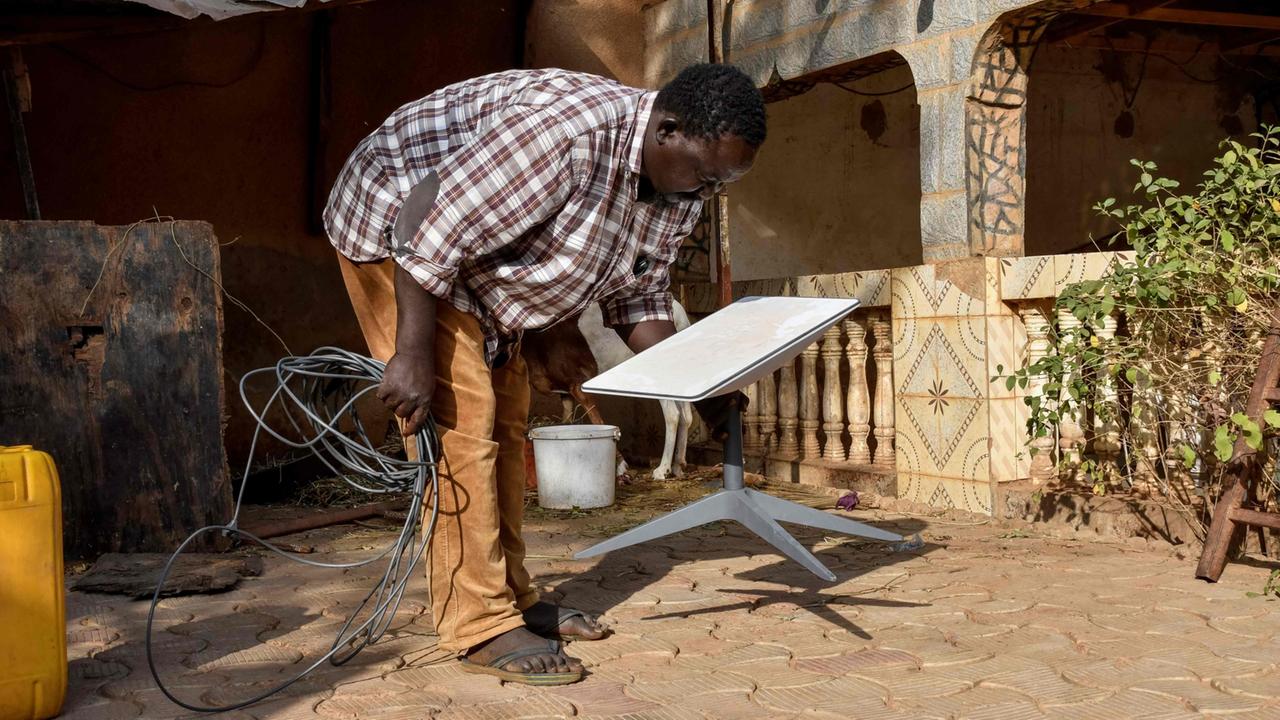The Internet satellite service of the Tesla boss Musk is available in more than 20 African countries-but not in South Africa. Musk sees himself as a victim of “racist laws”, which rejects the country's government.
For Elon Musk, this is again good news from southern Africa after a long time: At a record -breaking pace, Lesotho has given the Trump consultant's Internet service for the next ten years – less than three months after the application was submitted.
However, the fact that Starlink is allowed to remain 100 percent of a foreign company and does not have to get local partners on board in the country. There is talk of sell -out, fraud, disadvantage of regional internet providers. Rapuseletso Sekabi from the Civil Rights Organization Section 2: “If a company has local owners, it will consider the interests of the country and the population. We fear that a foreign group will only prioritize its profits instead of using the nation.”
Lesotho denies a buckle in front of the USA
The suspicion is obvious that Lesotho has been bent in front of the government in Washington and that the license allocation to the Musk company could be an attempt to avert the punitive tariffs announced by US President Donald Trump in the amount of 50 percent. Lesotho's Foreign Minister Lejone Mpotjoane does not want to know anything about it. After all, the conversations with the White House would not have started. “So far we have not presented the United States,” he says. “It is a fake news that the Lesotho government has received any obligations.”
For Elon Musk, Lesotho with its 2.3 million inhabitants is a manageable market. It would be much more important for him to start Starlink in South Africa. The economically strongest country in the continent – unlike Lesotho – states that the internet service must be sold 30 percent to historically disadvantaged groups. “Our laws aim to increase black South Africans in the country's economy,” explains President Cyril Ramaphosa.
Musk sees “racism against white”
Elon Musk criticizes this as “racism against white” and claims on his short message service X that Starlink is refused in South Africa because he is not a black man. According to US President Trump, the government in Pretoria even allows a “genocide” to the white minority.
Clayton Monyela, the spokesman for the Foreign Ministry, rejects – also on the platform X – and says to Elon Musk's address: “Sir, that's not true, and you know! It has nothing to do with your skin color. Starlink can be operated in South Africa if you comply with local laws. Over 600 US companies have invested here, everyone is successful and are successful!”
US companies successful in South Africa
Microsoft, for example, has just announced new investments. However, voices in the South African government coalition are also voices that Elon Musk want to accommodate. Telecommunications Minister Solly Malatsi from the economic liberal Democratic Alliance, for example, can imagine that foreign telecom corporations improve the participation opportunities of disadvantaged groups instead of a fixed participation rate on others- for example with investment and training programs.
By far the strongest force in the “government of national unity”, the African National Congress ANC, categorically rejects this, as well as the internet providers who are already working in South Africa. An end of the dispute between Elon Musk and the South African government is therefore not in sight – and the outcome is completely open. Perhaps that is why Starlink has not yet submitted a request for admission to the responsible regulatory authority.




